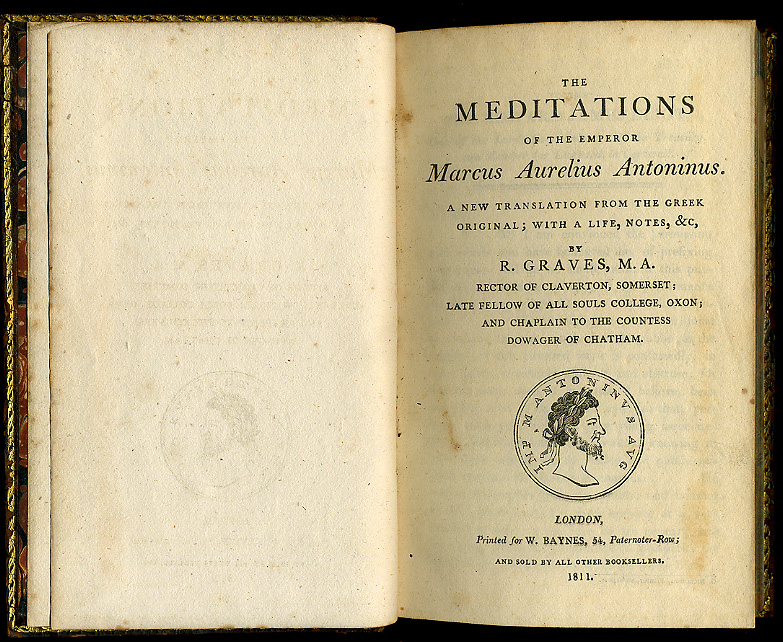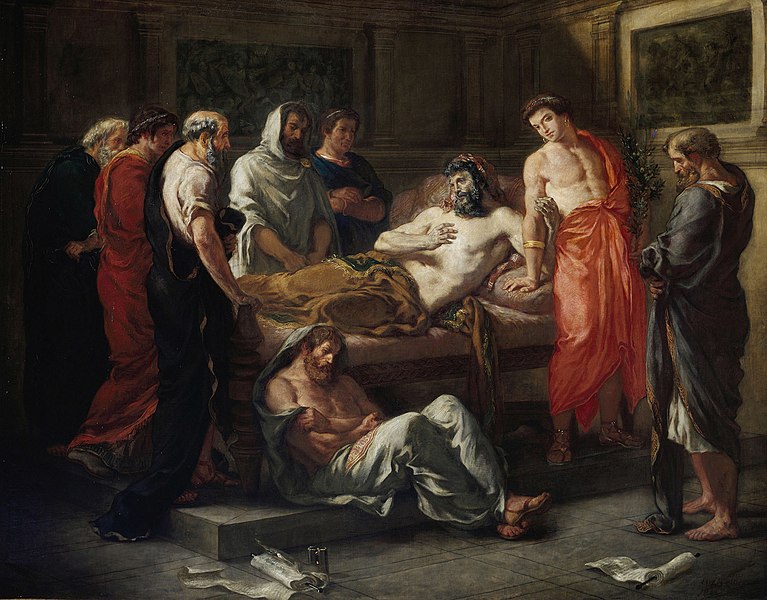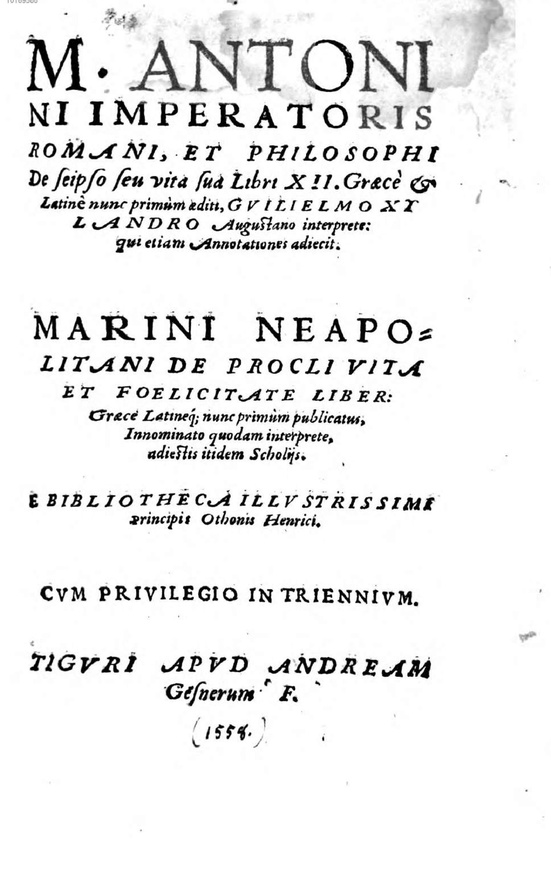“A little flesh, a little breath, and a Reason to rule all- that is myself.”
Marcus Aurelius, (161-180 AD), Book II, 2
Marcus Aurelius’ ‘Meditations’ is widely considered one of most valuable Philosophical collections to date.
He served as Roman Emperor from 161 to 180 A.D, and it is during this time that he wrote the contents of Meditations. Aurelius never meant for his writings to be published, they were private accounts, aimed to aid personal development and improvement. Aurelius practiced Stoicism and his writings are now very much part of our understanding of Stoic Philosophy. Every ‘book’ within Meditations contains various thoughts, varying in length and subject.

Meditations is unique in its accessibility.
Most of the entries serve as maxims; relatively short with a clear and powerful message. Meditations is very clearly an effort to lay out and implement thoughts that will support growth and self-realisation. Aurelius never anticipated an audience which allowed him to write with warmth and sincerity. Each passage stands as its own pearl of wisdom, each contributing to a grand discussion about duty, morality, character and our place in the world. Throughout Meditations, it’s very easy to forget that they are the words of a Roman Emperor. There are strong, powerful words in there, but there are just as many gentle sentiments. What does a Roman Emperor, aptly named ‘the Philosopher’, have to say?
“So here is a rule to remember in future, when anything tempts you to feel bitter: not ‘This is a misfortune’, but ‘To bear this worthily is good fortune.'”
Aurelius (161-180 AD), Book IV, 49
We can imagine that as Emperor, Aurelius had to bear a lot of burdens, and he spent much time considering how to carry them. In true Stoic fashion, he believed in the importance of bearing misfortune with honour. He saw it, as many Stoics did before him, as a chance to prove himself worthy. He did not believe in cursing the skies and playing victim to misfortune. We may be powerless over the fortune we are dealt but we are not powerless over how we bear it.
“Avoid grumbling; be frugal, considerate and frank; be temperate in manner and in speech; carry yourself with authority. See how many qualities there are which could be yours at this moment. You can allege no native incapacity or inaptitude for them; and yet you choose to linger still on a less lofty place.”
Aurelius, (161-180 AD) Book V, 5
Aurelius in this passage advocates for moderation and self-restraint in behaviour and action. Good advice for anyone, but especially wise for an Emperor. In a position of such enormous power we can imagine that it would be very easy to be imperious, consumed by self-importance and driven mad with control. He also sets his eyes on development. We know what we must improve upon, often we know what to do to make those improvements, and still, we do nothing. Instead of working for excellence, we settle for mediocrity.

“He gave everyone the conviction that he spoke as he believed, and acted as he judged right.”
Aurelius, (161-180 AD), Book I, 15
Aurelius is not above admiration. In the beginning of Meditations, he speaks of many people who have influenced him. One of these is Maximus, believed to have been a teacher of Aurelius. He describes Maximus as someone we would all wish to be like. He shows fortitude, bearing sickness with dignity; a possessor of self-control, acting always in the mean, not allowing vices to control him. Maximus was honourable, dignified, strong and kind. Aurelius’ clear admiration for a man of this sort gives us an insight into the man he was striving to become. We should look at who we admire and figure out why. What we admire in someone is usually something we lack. We admire people who can do what is difficult, what we fail to do. It is important to recognise the qualities we admire, so we know what we wish to achieve.
“Think of your many years of procrastination; how the gods have repeatedly granted you further periods of grace, of which you have taken no advantage.”
Aurelius, (161-180 AD), Book II, 4
Far too often we all strive to display what qualities we already hold, instead of striving to attain the ones we don’t. Aurelius was a king of kings, we can’t even imagine the level of status he held. He was the most powerful man in the world at one point in history, and his prime concern, and challenge, was still how to be a good man. He desired to be someone great, not just by title, and he believed that practicing Stoicism was the way to get there. With an account of his thoughts we get an insight into who he was and more importantly, who he was striving to become. An Emperor and a Philosopher.
“Be careful not to affect the monarch too much, or to be too deeply dyed with the purple; for this can well happen. Keep yourself simple, good, pure, serious and unassuming; the friend of justice and godliness; kindly, affectionate, and resolute in your devotion to duty. Strive your hardest to be always such a man as Philosophy would have you to be.”
Aurelius, (161-180 AD), Book VI, 30

Aurelius, M., 161-180 AD, Meditations, translated by Maxwell Staniforth, Penguin Books- Great Ideas, Suffolk, England, 2004



